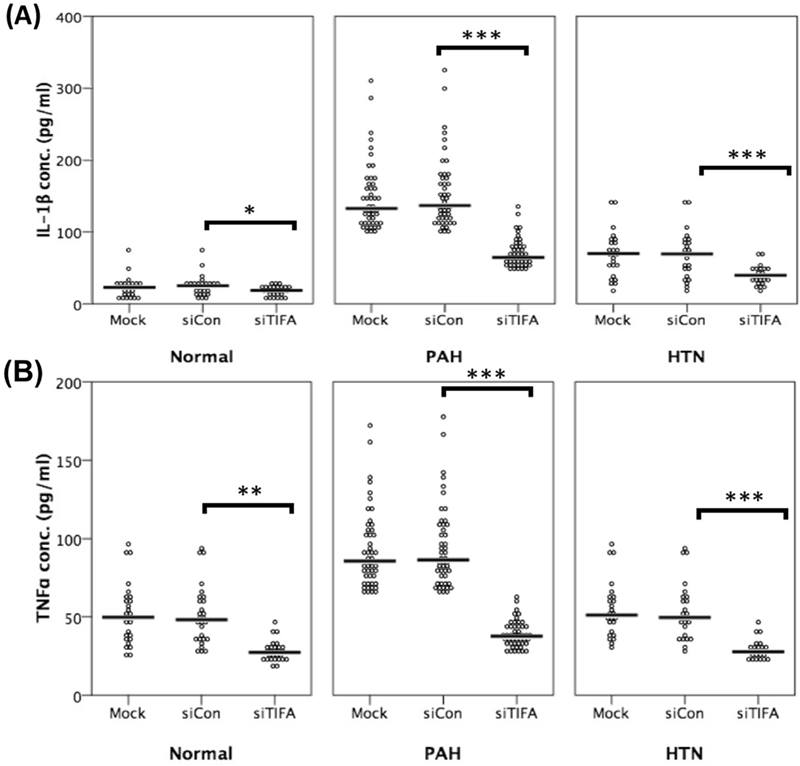
 中央研究院 生物化學研究所
中央研究院 生物化學研究所
Tumor necrosis factor receptor-associated factor-interacting protein with a forkhead-associated domain (TIFA), a key regulator of inflammation, may be involved in the pathogenesis of pulmonary arterial hypertension (PAH). A total of 48 PAH patients (age 50.1 ± 13.1 years, 22.9% men), 25 hypertensive subjects, and 26 healthy controls were enrolled. TIFA protein expression in peripheral blood mononuclear cells (PBMCs) and plasma interleukin (IL)-1β and tumor necrosis factor (TNF)-α were measured. Pulmonary arterial hemodynamics were derived from right heart catheterization. PAH patients had the highest expression of TIFA, TNF-α, and IL-1β. TIFA protein expression was significantly associated with IL-1β (r = 0.94; P < 0.001), TNF-α (r = 0.93; P < 0.001), mean pulmonary artery pressure (r = 0.41; P = 0.006), and pulmonary vascular resistance (r = 0.41; P = 0.007). TIFA protein expression could independently predict the presence of PAH (odds ratio [95% confidence interval per-0.1 standard deviation]: 1.72 [1.37-2.16]; P < 0.001) and outperformed echocardiographic estimation. Ex vivo silencing of TIFA protein expression in PBMCs led to the suppression of the cellular expression of IL-1β and TNF-α. IL-1β and TNF-α mediated 80.4% and 56.6% of the causal relationship between TIFA and PAH, respectively, supporting the idea that TIFA protein is involved in the pathogenesis of PAH.
